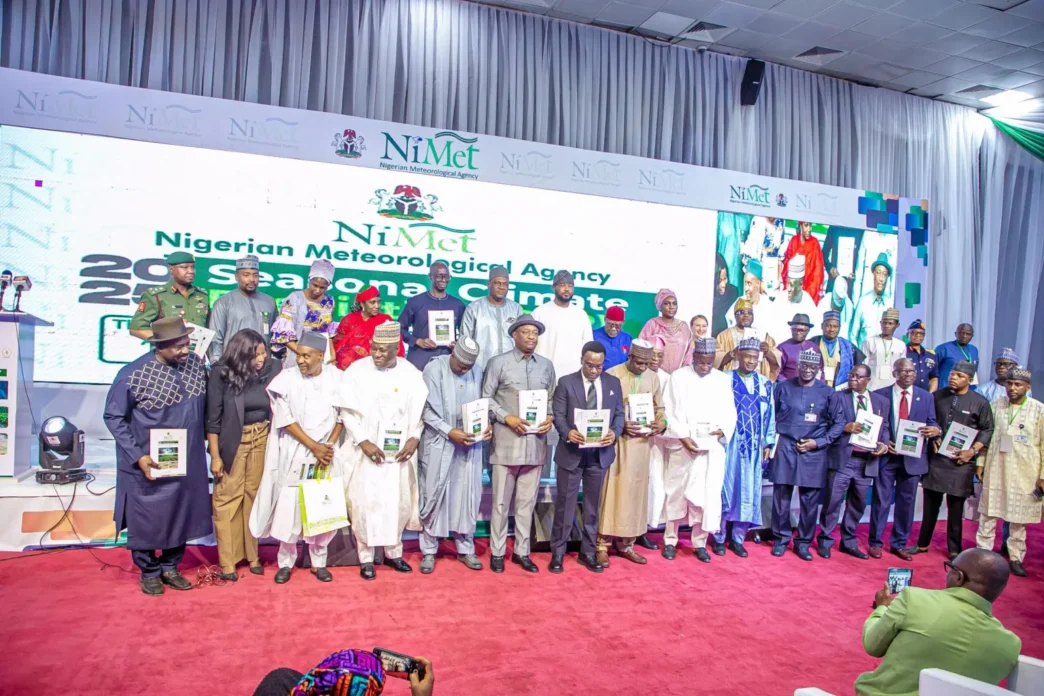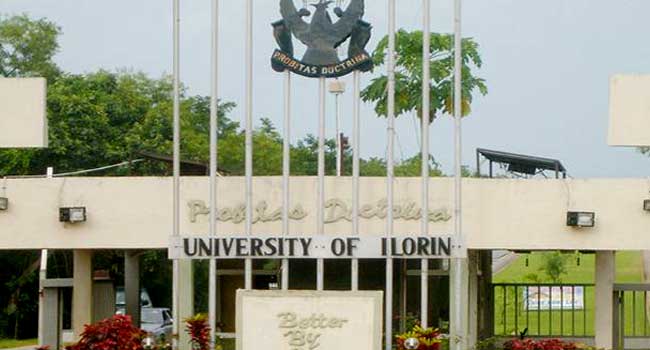Federal Government has unveiled 2025 Seasonal Climate Prediction (SCP)
Gatekeepers News reports that the document packaged by the Nigerian Meteorological Agency (NiMet) predicts early rainfall in some parts of the country.
Minister of Aviation and Aerospace Development, Festus Keyamo unveiled the seasonal climate prediction in Abuja on Tuesday.
Keyamo said the SCP document is a critical tool for informed decision-making by the government and other stakeholders in the country.
The SCP document is themed ‘The Role of Early Warnings towards a Climate Resilient Aviation Industry for Sustainable Socio-Economic Development’.
NiMet predicted that most parts of the country would experience significant rainfall events at the beginning of 2025, noting that the rains would come before the onset.
NiMet predicted the onset of rainfall to be delayed over northern, central states of Plateau and some parts of Kaduna, Niger, Benue, Nasarawa, Taraba, Adamawa, and Kwara.
Early onset is expected over Southern states of Delta, Bayelsa, Rivers, Anambra, and parts of Oyo, Ogun, Osun, Ondo, Lagos, Edo, Enug1u, Imo, and Ebonyi, while other regions are predicted to have a normal onset.
The predicted end-of-rainy season compared to the long-term average indicates that parts of Zamfara, Katsina, Kano, Kaduna, Jigawa, Plateau, Bauchi, Borno, Yobe, Adamawa, Taraba, Niger, Kwara, Kogi, FCT, Ekiti, and Ondo states are expected to be early while the delayed end of the season is expected over parts of Kaduna, Nasarawa, Benue, Lagos, Kwara, Taraba, Oyo, Ogun, Cross River, Delta, Akwa Ibom, Ebonyi, Anambra, and Enugu states.
Giving his keynote address, Keyamo disclosed that The SCP document is a critical tool for informed decision-making.
He said, “It offers insights into expected weather and climate patterns, equipping various sectors with the foresight needed to plan, mitigate risks, and harness opportunities. Agriculture, disaster risk management, health, marine operations, transport—and especially aviation—are among the many domains that will benefit from this invaluable resource and advisory.”
“Climate change poses significant challenges to the aviation industry, including erratic weather patterns and extreme events that impact airline operations. Adverse weather conditions, such as thunderstorms and flash floods, result in flight delays, injuries, and economic losses.”
“The aviation industry relies heavily on weather forecasts, with decisions on flight plans and take-off and landing times made based on weather conditions. The International Air Transport Association (IATA) reported a significant increase in global flight delays due to weather conditions, from 11% in 2012 to 30% in 2023.”
“Early warning systems, backed by robust climate predictions, are essential in overcoming the challenges posed by climate change. The SCP document provides critical information for informed decision-making, offering insights into expected weather and climate patterns. The document will benefit various sectors, including agriculture, disaster risk management, health, and aviation.”
“Timely climate predictions will enable farmers to optimize farming schedules, disaster managers to prepare for emergencies, and health authorities to anticipate disease outbreaks.”
The Minister urged stakeholders to make good use of the information provided in the SCP document to make informed decisions and improve productivity.
Permanent Secretary of Ministry of Aviation and Aerospace Development, Dr. Ibrahim Abubakar Kana in his welcome address, said the accompanying summary SCP document for policy-makers, translations of the SCP into Hausa, Igbo, Yoruba, and Pidgin languages, including a comprehensive report on the State of the Climate in Nigeria for 2024 underscore the Ministry’s and NiMet’s commitment to inclusivity, accessibility, and ensuring that the information reaches even the most remote communities.
He said, “Today’s session is particularly special because it represents our dedication to public engagement, ensuring that the knowledge we generate benefits communities across all 36 states of the federation and the FCT.”
Director General and Chief Executive Officer of NiMet, Prof Charles Anosike while speaking, said that Seasonal Climate Prediction (SCP) was perishable just like other weather and climate predictions, and required actors to uptake the information, utilize it, and provide feedback for evaluation and improvement of the document.
Anosike thanked the Chairman of the Senate Committee on Aviation, and the Chairman of the House Committee on Aviation Technology, for their unrelenting support towards the progress of NiMet.
He said, “My appreciation goes to the Members of the Senate, and House of Representatives and Excellencies-Governors in attendance and/or their representatives for accepting our invitation and gracing this important event. NiMet relies on your constituencies and States for subsequent downscaling of the Seasonal Climate Prediction for maximum impact at the last mile.”












